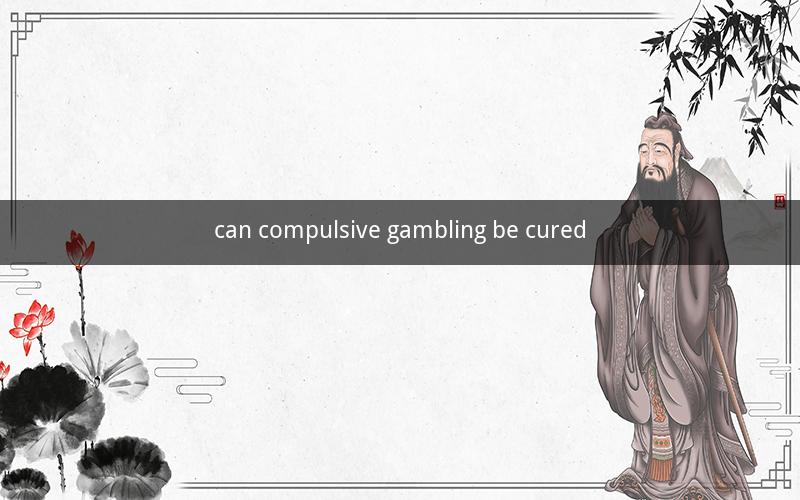
Can Compulsive Gambling Be Cured?
Table of Contents
1. Understanding Compulsive Gambling
2. The Impact of Compulsive Gambling
3. Causes of Compulsive Gambling
4. Diagnosis and Treatment Approaches
5. The Role of Therapy in Treating Compulsive Gambling
6. Medications and Their Effectiveness
7. Support Groups and Community Resources
8. The Importance of Family and Friends
9. Preventing Relapse
10. The Future of Compulsive Gambling Treatment
1. Understanding Compulsive Gambling
Compulsive gambling, also known as gambling disorder, is an addictive behavior characterized by an inability to control the urge to gamble despite negative consequences. This condition affects individuals from all walks of life and can lead to significant financial, emotional, and social problems.
2. The Impact of Compulsive Gambling
The consequences of compulsive gambling can be devastating. Financial losses can lead to debt, foreclosure, and bankruptcy. Relationships may suffer as trust is eroded, and family dynamics can become strained. In some cases, compulsive gambling can lead to legal problems, substance abuse, and even suicide.
3. Causes of Compulsive Gambling
Several factors can contribute to the development of compulsive gambling. These include genetic predisposition, environmental influences, personality traits, and mental health conditions. Stress, boredom, and the thrill of risk-taking are also common triggers.
4. Diagnosis and Treatment Approaches
Diagnosing compulsive gambling involves a thorough assessment of the individual's gambling behavior and its impact on their life. Treatment approaches can vary but often include cognitive-behavioral therapy (CBT), motivational interviewing, and support groups.
5. The Role of Therapy in Treating Compulsive Gambling
Therapy plays a crucial role in treating compulsive gambling. CBT helps individuals identify and change negative thought patterns and behaviors associated with gambling. Motivational interviewing encourages individuals to consider the benefits of change and to make informed decisions about their treatment.
6. Medications and Their Effectiveness
While there are no medications specifically designed to treat compulsive gambling, certain drugs may help manage symptoms of co-occurring mental health conditions, such as depression or anxiety. Antidepressants, mood stabilizers, and anti-anxiety medications are sometimes prescribed.
7. Support Groups and Community Resources
Support groups, such as Gamblers Anonymous, provide a safe and supportive environment for individuals struggling with compulsive gambling. Community resources, including counseling services and hotlines, can also offer assistance and guidance.
8. The Importance of Family and Friends
Family and friends can play a significant role in the recovery process. They can provide emotional support, help the individual develop healthy coping strategies, and encourage them to seek professional help. Education and support for family members can also be beneficial.
9. Preventing Relapse
Preventing relapse is essential in the treatment of compulsive gambling. This involves identifying triggers, developing a relapse prevention plan, and maintaining a strong support system. Regular check-ins with a therapist or support group can also help individuals stay on track.
10. The Future of Compulsive Gambling Treatment
The future of compulsive gambling treatment looks promising. Advances in technology, such as virtual reality and mobile apps, may offer new and innovative approaches to treatment. Additionally, increased awareness and research into the condition can lead to better diagnostic tools and more effective treatment options.
---
Questions and Answers
1. Q: What is the difference between problem gambling and compulsive gambling?
A: Problem gambling is characterized by mild to moderate gambling-related issues, while compulsive gambling involves severe and persistent gambling behavior that significantly impacts the individual's life.
2. Q: Can compulsive gambling be treated without therapy?
A: While some individuals may benefit from self-help strategies and community resources, therapy is often considered the most effective treatment approach for compulsive gambling.
3. Q: Are there any genetic factors that contribute to compulsive gambling?
A: Yes, research suggests that there may be a genetic predisposition to compulsive gambling, with certain genes influencing the risk of developing the disorder.
4. Q: Can medication alone cure compulsive gambling?
A: Medication alone is not typically considered a cure for compulsive gambling, but it may help manage symptoms of co-occurring mental health conditions.
5. Q: How can someone tell if they have a gambling problem?
A: Signs of a gambling problem include lying about gambling activities, neglecting responsibilities, experiencing financial difficulties, and feeling compelled to gamble despite negative consequences.
6. Q: Are there any effective self-help strategies for compulsive gambling?
A: Yes, self-help strategies such as setting strict gambling limits, avoiding trigger situations, and seeking support from friends and family can be effective.
7. Q: Can compulsive gambling affect a person's career?
A: Yes, compulsive gambling can significantly impact a person's career, leading to job loss, decreased productivity, and strained work relationships.
8. Q: How can family and friends help someone with a gambling problem?
A: Family and friends can help by offering support, encouraging the individual to seek professional help, and being patient during the recovery process.
9. Q: Can compulsive gambling lead to suicidal thoughts?
A: Yes, the stress and consequences of compulsive gambling can lead to feelings of hopelessness and despair, which may increase the risk of suicidal thoughts.
10. Q: Is it possible to recover from compulsive gambling?
A: Yes, recovery from compulsive gambling is possible with proper treatment, support, and dedication to the recovery process.